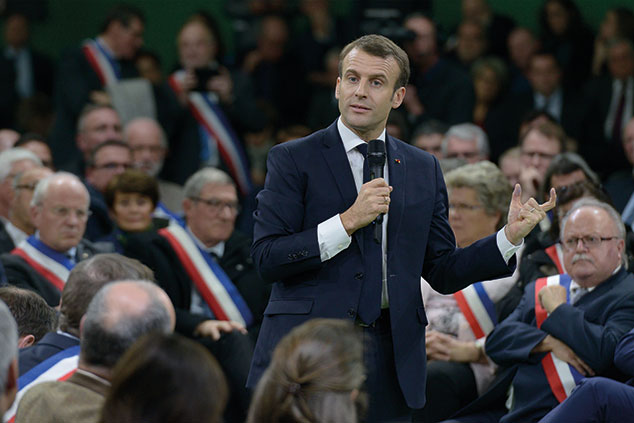
President Emmanuel Macron’s plans for a national “grand debate” to help resolve the crisis caused by the ongoing gilets jaunes protests currently roiling France could be seen as either “an imaginative bid to revitalise democracy in the social-media age” or “a cynical manoeuvre to outfox the yellow-vest protesters, and buy time before the Euro-elections in May”, says the BBC’s Hugh Schofield.
The “mass consultation” of the French people that the president has embarked upon will conducted in town halls, at public meetings and on the internet, and the results will be fed up to government to “help shape the second half of the Macron mandate”. The idea is to deal with protestors’ complaints about “the lack of democratic representation felt by many people in rural and small-town France”.
Will it work?
The consultation is a “good start”, says The Irish Times. But the “aloof, imperious” Macron will need more than a few photo opportunities with local mayors to show that the “the Jupiterean president really has come back to earth”. He is seen as the embodiment of the “wealthy, self-assured cosmopolitan elite that many who live in the French economic periphery resent”.
While Macron can’t be seen to be “bowing to violence”, it would be a “terrible mistake” to ignore the legitimate concerns of the protestors – many of whom “are French cousins of Donald Trump voters in the US”. One issue that “must be addressed” is the “chronic, long-standing sore” of the cost of living.
Historical precedent would suggest things don’t exactly look encouraging for Macron’s chances of success, says Ben Hall in the Financial Times. A similar call for public consultation by Louis XVI in 1789, rather than defusing public anger, simply increased the “spirit of insurrection”, leading to the French Revolution. Macron runs the risk of similarly fanning the flames.
The range of topics up for discussion is “absurdly broad”, and Macron has made it clear that he will not revisit tax decisions taken in the past 20 months, including the scrapping of the wealth tax, “the number one beef of many gilets jaunes”. The theory is that the exercise will channel public frustration in more productive directions. It’s more likely to “prove a waste of time that only breeds public cynicism”.
Violence getting out of hand
But even if the consultation does turn out to be little more than a “talkfest”, something needs to be done to restore some sense of order, says Adam Nossiter in The New York Times. As well as the “random violence” and “vandalism in the streets of Paris and other French cities”, there is a general “atmosphere of increasing menace” in France at present. Many of Macron’s parliamentary supporters “have been threatened, their houses and offices vandalised, and anti-Semitic and racist insults hurled at them”.
Indeed, many experts are comparing the current protests “to the atmosphere of the 1930s, when fascistic leagues threatened France’s democracy and marched on the National Assembly”. The current situation, Macron told the mayors at his first event, presents the country with a lot of challenges. “That was something of an understatement.”